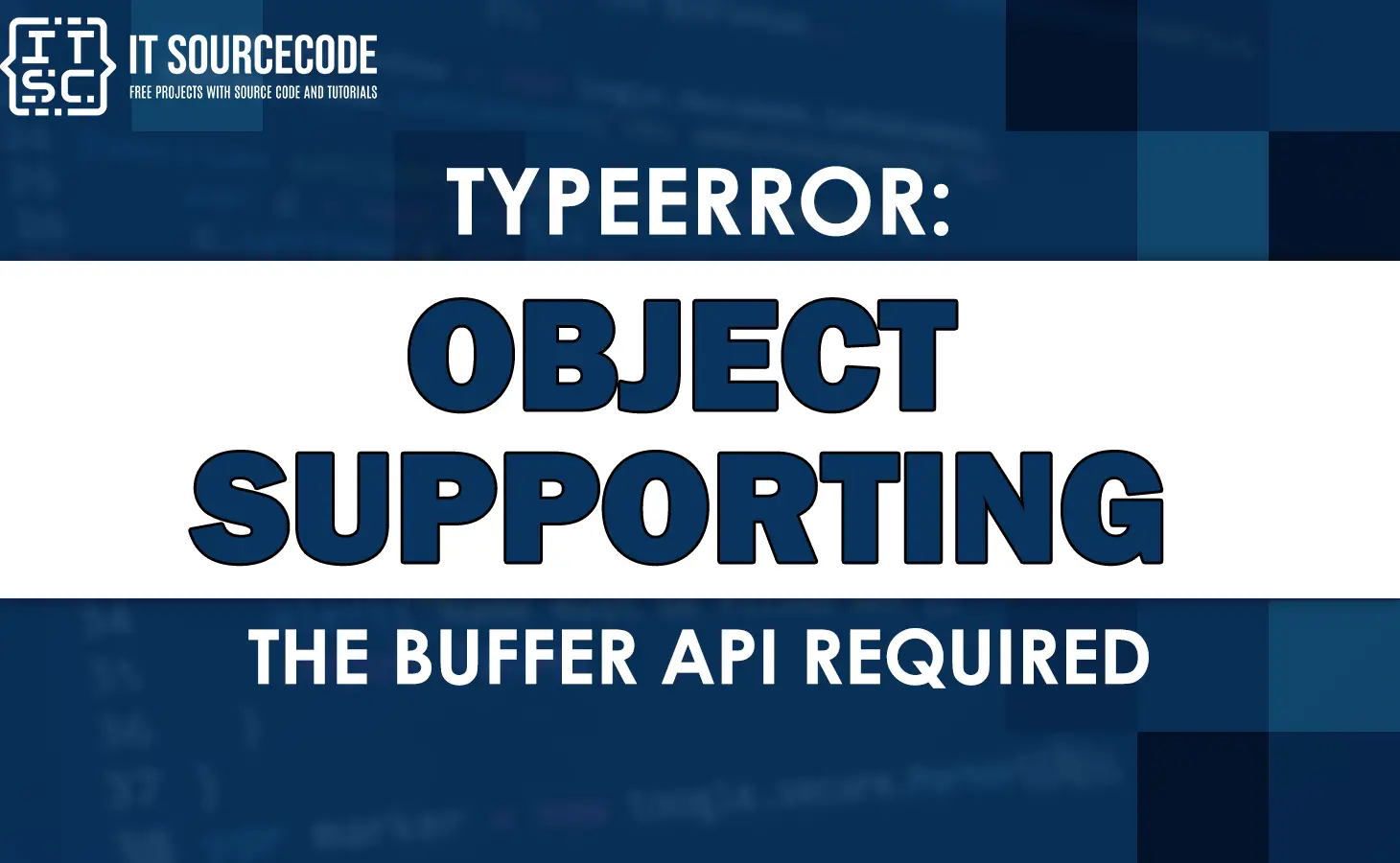When working with Python projects, we may come across an error that says Typeerror object supporting the buffer api required.
At first glance, this error can seem cryptic and frustrating.
However, it’s actually a helpful indication that points toward the root of the problem.
Eventually, this object supporting the buffer api required typeerror can be fixed in the following approach:
- Convert the object to a buffer-like object that supports the buffer API
- Use a different method that accepts the object without requiring the buffer API
But prior to that, we’ll explore first the causes of this error as well as provide practical examples of how to resolve it.
By the end of this guide, we’ll have a better understanding of how to prevent and fix this error in Python.
What is Typeerror object supporting the buffer api required?
The “TypeError: object supporting the buffer API required” error usually means that a function or method requires an object that supports the buffer API (Application Programming Interface), but the object being used doesn’t support it.
Further, buffer API is a way for objects in Python to expose their data in a raw, byte-oriented format.
Additionally, this is useful when working with binary data, like reading or writing files, sending data over a network, or working with certain libraries and modules.
When this error occur?
Here is an example of when the “TypeError: object supporting the buffer API required” error might occur:
import numpy as np
my_array = np.array([1, 2, 3, 4, 5])
with open('myfile.bin', 'wb') as f:
f.write(my_array)
In this example, we are using the NumPy library to create an array of integers.
We then attempt to write this array to a binary file using the built-in open() function and the ‘wb’ mode.
However, the write() method expects a buffer-like object, but the NumPy array does not support the buffer API.
As a result, we’ll get the "TypeError: object supporting the buffer API required" error.
How to fix this typeerror object supporting the buffer api required error
Here are some solutions you might consider to try in fixing typeerror object supporting the buffer api required depending on the specific case of your error.
📌 Solution 1: Convert the object to a buffer-like object that supports the buffer API
Here is an example of how to convert a NumPy array to a buffer-like object using the tobytes() method:
import numpy as np
my_array = np.array([1, 2, 3, 4, 5])
with open('myfile.bin', 'wb') as f:
f.write(my_array.tobytes())
The tobytes() method converts the NumPy array to a buffer-like object that supports the buffer API.
This allows the write() method to write the binary data to the file without raising an error.
📌 Solution 2: Use a different method that accepts the object without requiring the buffer API
Here is an example of how to use the NumPy save() method instead of the built-in open() and write() methods:
import numpy as np
my_array = np.array([1, 2, 3, 4, 5])
np.save('myfile.npy', my_array)
The save() method in NumPy is designed to save arrays to disk in a binary format.
Therefore, it can accept NumPy arrays without requiring a buffer-like object that supports the buffer API.
In this case, we can simply pass the NumPy array to save() along with the filename we want to save it.
As a result, the resulting file will be in a binary format that can be loaded back into a NumPy array using the load() method.
Anyway, we also have a solution for Typeerror: cannot perform reduce with flexible type errors, you might encounter.
Conclusion
In conclusion, this typeerror object supporting the buffer api required is an error that occurred when
a function or method requires an object that supports the buffer API however the object being used doesn’t support it.
To fix this error just convert the object to a buffer-like object that supports the buffer API or use a different method that accepts the object without requiring the buffer API.
Considering the solution we provided above will eventually fix the error.
We hoped you have learned and this article has helped you fix the error and get back to coding.
Thank you! 😊

